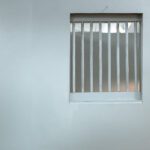Two Curtin University-led research projects that have the potential to have a profound impact on the defence industry have been awarded funding in the State Government’s inaugural defence research grants program.
Curtin’s grant winners included a project investigating high-speed underwater wireless communications for Australian Navy vehicles led by Professor Yue Rong, from the Faculty of Science and Engineering, and a proposal to maximise military team development and performance led by Associate Professor Daniel Gucciardi, from the School of Physiotherapy and Exercise Science.
Premier Mark McGowan and Defence Minister Paul Papalia announced the collaborative Curtin-led proposals have been awarded almost $150,000 each as part of the State Government’s new Defence Science Centre, which promotes skills exchange between universities, government and industry.
Curtin University Vice-Chancellor Professor Deborah Terry congratulated the grant recipients, adding that the projects put forward compelling cases for developing complex research into practical outcomes for Australia’s defence industry.
“These projects are both outstanding examples of Curtin University’s commitment to industry collaboration and making an impact through research that makes a real difference,” Professor Terry said.
“Underwater autonomous drones will have a large impact on Australian Defence operations and Professor Rong’s research into undersea wireless communication will support enhanced capability for our Navy.
“Associate Professor Gucciardi’s research into optimising military team performance via fit-for-purpose reflection protocols tailored for the defence context will inform the future success of the military workforce. This project is a further extension of the work that has already been done with Australia’s Defence Force through Curtin’s Faculty of Health Sciences.”
The High-speed Multimodal Underwater Wireless Communications project also involves Edith Cowan University researchers, Fremantle-based company L3Harris Oceania and Defence Science and Technology (DST).
The Optimising Team Development and Performance via Team Reflection Protocols project also involves Macquarie University, The University of Western Australia, DST and is supported by staff at Sir Charles Gardiner Hospital and global defence company Thales.
For more information on the State Government’s Defence Science Centre Collaborative Research Grants visit here.



